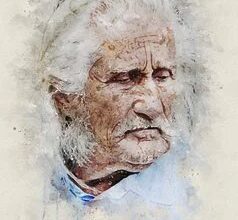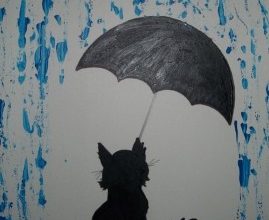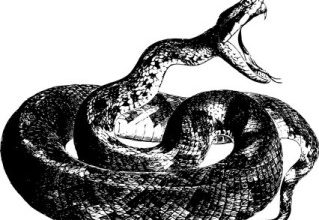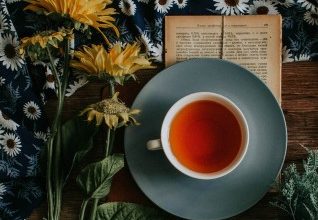Politics is a poem by Irish poet William Butler Yeats written on May 24, 1938. It was composed during the time of the Spanish Civil War as well as during the pre-war period of Adolf Hitler’s Third Reich in Germany. This is the last poem by Yeats, according to all records.
The poem presents the contradictory nature of politics that is often seen in the works of Yeats. On one hand, the poet is talking about the different political scenarios around the world, and on the other hand, he is comparing all the politics of the world to the beauty of a woman he cannot hold. All the politicians talking about their political affairs hold no more interest for Yeats than the arms of the woman he loves. Love is shown and told to be the bigger reality of the two, representing the warring conflicts in Yeats, the one that wants to heed the external world and its issues, and the other who just wants to lay down with the love of his life.
‘In our time the destiny of man presents its meanings in political terms‘ – Thomas Mann
Yeats mentions a young woman who is studying in this poem and how he thinks she is attractive. But instead of going over and embracing her in his arms, he daydreams about it since he feels too old for her. Mann merely informs us that people debate everyday activities using politics in the line that precedes the poem’s opening. Yeats follows Mann’s example and performs the same thing. This line foreshadows the entire poem, through the subject of essentializing politics in daily life, which Yeats takes to an extreme end, where he disregards all that is happening around him and instead concentrates his attention on the woman he loves. However, the important thing is that this woman is not even with him, she’s out of reach, yet Yeats is absorbed in her beauty.
Politics | Analysis, Lines 1-4
How can I, that girl standing there,
My attention fix
On Roman or on Russian
Or on Spanish politics?
These lines shed light on Yeats’ perspective on politics and love. The entire world of politics stands unimportant in front of the woman he loves. These lines reference the different political affairs that were happening at that point in time. The poem hints at “Rome” (Italy), “Russia” (the Soviet Union), and Spain (Spanish Civil War), along with references to Hilter’s regime, but ultimately turns the poetic direction towards a personal situation rather than the political one. In the poet’s eyes, the beauty of his beloved is paramount and all else fails to capture his attention.
Yeats is known to intrinsically link art and politics in his poems and was active in the political sphere, especially with his connections to the Irish National Theatre, the Irish Literary Society, the Irish Republican Brotherhood, and Maud Gonne. Maud Gonne proved to be his biggest muse and inspiration when it came to poetry or politics. Considering the beloved, Maud Gonne, who was an active suffragette and a revolutionary, it makes sense that instead of looking at the political affairs she represents, Yeats would focus on the woman herself. This poem is a political statement in itself, where the poet is trying to comment on the everlasting nature of love and the power it holds to end all politics. Maud Gonne elicits a strong and passionate response in Yeats and all politics seems futile.
Politics | Analysis, Lines 5 – 12
Yet here’s a travelled man that knows
What he talks about,
And there’s a politician
That has read and thought,
And maybe what they say is true
Of war and war’s alarms,
But O that I were young again
And held her in my arms.
Yeats talks about a man who has seen the world and a politician who is a well-read man, with vast experience and knowledge. Yeats is not interested in talking about worldly affairs with any of these two men, who possess huge amounts of information on the issues plaguing the world. These men are discussing the future of the various countries in the world, and how war must be brewing. There are “war’s alarms” but Yeats is disinterested in such matters, and is instead engrossed in the fantasies about holding the woman he loves in his arms. These men might be accurate in their observations and predictions, but war seems less important to Yeats than being young again and in love.
Yeats presents the dichotomies between reality and fantasy, youth and old age, political and personal. Yeats continuously explored this disjunction between youth and old age in poems written in his later years, where he sees that love is enjoyed by the youth, while old people indulge in politics and tourism. This propels his daydreams of being young again, so that he may pursue the woman he loves. There has been much debate about his affections towards Maud Gonne who never returned these feelings.
Love is therefore presented in higher regard in Yeats’ poems, and this one too. In the face of vibrant love and youthful beauty, politics loses its allure. Yeats contrasts the truth of love with the reality of politics in this poem. Political fact, in his opinion, cannot be rejected, but it is undoubtedly called into question in the face of the idealism of love. The woman in the poem represents youth and beauty and arouses a man’s intense longing for love. Love is a more delightful substitute than political affairs and current news. In light of this fundamental necessity and reality, the world of influential politics seems to have no relevance. The poem uses straightforward language and direct imagery and words.
Politics | ABOUT THE AUTHOR
William Butler Yeats was an Irish poet, dramatist, writer, and one of the foremost figures of 20th-century literature.




